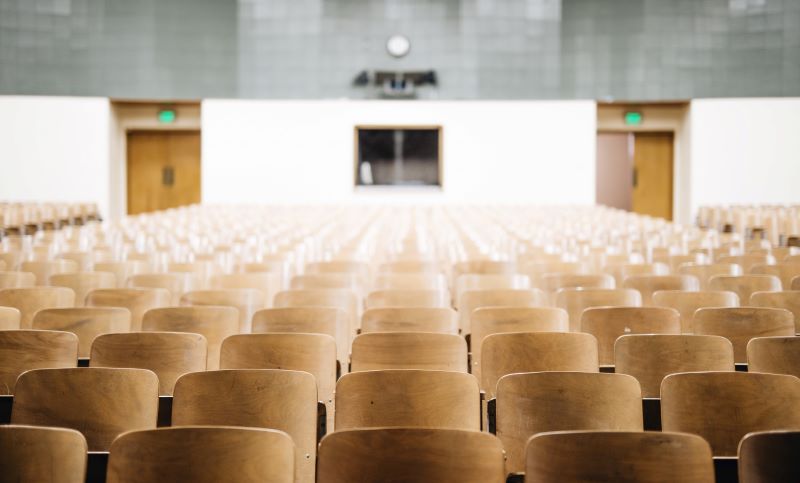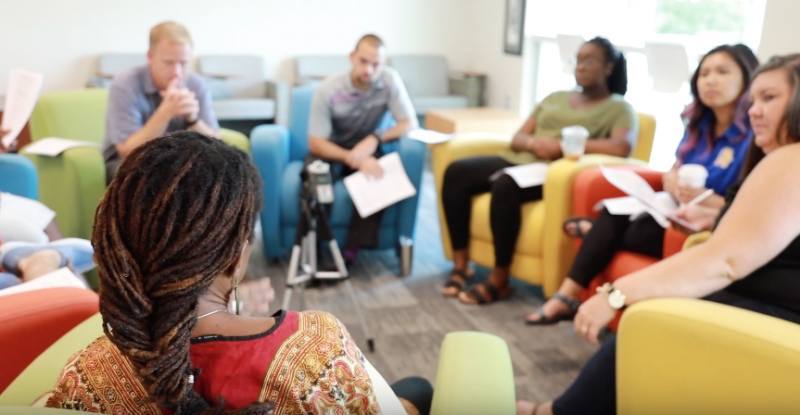
Catholic colleges and universities are in a unique position to be able to courageously respond to humanity’s most urgent challenges. They are institutions that call upon their community members to engage one another in a vibrant exchange of ideas. Faculty and administrators create opportunities for students to experience, reflect upon, and act from a commitment to justice, mercy, and compassion.
Recognizing a natural alignment between the mission and values of Catholic higher education and the philosophy of restorative justice, the Restorative Justice Network of Catholic Campuses (RJNCC) was formed to encourage Catholic campuses to articulate and cultivate restorative principles and assist each other in strengthening interest, commitment, and implementation of restorative practices on their campuses.
Take a look at these three areas in which the RJNCC has observed a growing interest for restorative justice on Catholic campuses:
Community Building
Catholic campuses seek to welcome students into a vibrant community that celebrates God’s love for all. They go beyond politely bringing students to campus; rather, they receive students and allow themselves to transform in the process because of their presence.
Restorative practices create spaces that support the common good, share stories of our lived experience, and learn from the wisdom that each person holds inside. As a result, campuses have begun using restorative circles in classrooms, residence halls, athletic teams, and student organizations to build a community that fosters strong relationships.
Community Concerns
Campuses are microcosms of the larger world and the world’s challenges reverberate through our communities. Our missions’ call upon us to promote dialogue and lean into difficult conversations in the midst of tension and ambiguity, while valuing the dignity of all humans.
Restorative justice invites conversations that center the needs of others while also examining the root causes of injustice in the world and on Catholic campuses. Campuses are using restorative practices to address challenges around race, religion, gender, and the red/blue political divide.

Student Behavior
As university students navigate through their emerging adulthood, they wrestle with the difficult choices and big questions presented by the college experience. Inevitably, they make mistakes or are harmed by the mistakes of others.
Campuses are increasingly implementing restorative responses to situations of student misconduct such as binge drinking, academic dishonesty, bias incidents, and sexual misconduct. Catholic higher education challenges students to high standards of personal behavior and responsibility through the formation of character and virtues. Restorative justice provides the social and emotional tools to repair harm to the best extent possible while also supporting a student’s own development and values clarification.
Getting Involved with RJNCC
If you have an interest in restorative justice, the RJNCC welcomes your involvement. Housed in the Center for Restorative Justice at the University of San Diego, the RJNCC is committed to creating a professional and academic support community for restorative justice practitioners on Catholic campuses. Through training, conference sponsorships, publications, and professional education scholarships the RJNCC seeks to grow the use of restorative practices in Catholic higher education. By exposing students to restorative justice during college, they can learn to engage restoratively with the communities they enter after graduation.
Never Miss a Post!
Sign up to receive email notifications about new stories, reflections, and posts shared on the Hope Over Death Blog.







